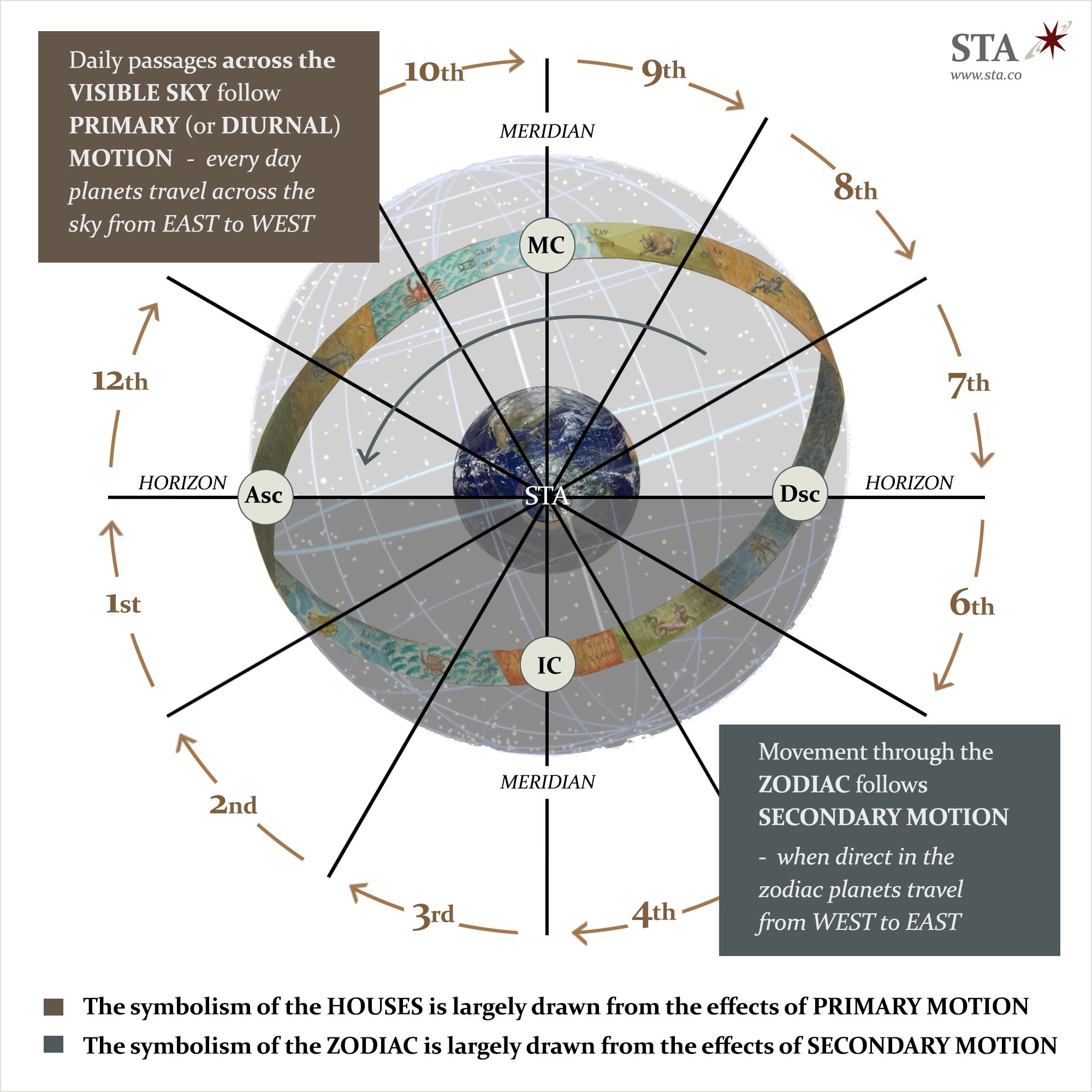DispositorA planet which rules another because the other is in one of its areas of essential dignity. For example, Venus, the planetary ruler of Taurus, is the dispositor of any planet in Taurus: that planet is said to be diposed by Venus by sign. Planets can also be disposed by the lesser dignities (see essential dignity). The general condition of the dispositor has some bearing on the strength of the planet disposed by it. |
Diurnal hemisphereThis is the hemisphere above the horizon, comprising the 7th,
8th, 9th, 10th, 11th and 12th houses. |
Diurnal motion/revolutionApparent motion of the heavens which carries
planets from the eastern horizon, up to the midheaven, and down towards the
west, as perceived by the senses from our seemingly stationary viewpoint. Also
known as ‘primary motion’.
|
Diurnal sectSee ‘sect’. |
Diurnal/nocturnalDiurnal means ‘of the quality of the day’;
nocturnal means ‘of the quality of the night’. Diurnal energies relate to
masculinity and the solar principle, being active, direct and expressive,
whilst nocturnal energies relate to femininity and the lunar principle, being
responsive, indirect, and impressive. Yin and Yang are analogous oriental
terms. The characteristics of diurnal and nocturnal influences infiltrate many
areas of astrological philosophy, from the alternation of the signs (usually
referred to as masculine and feminine), to the assignation of planetary
rulerships over the signs. Apart from the Sun and Moon each planet has two
rulerships – one diurnal, one nocturnal – to recognise their expression in
these altered states (for example, Mars rules Aries, its diurnal ‘house’, and
Scorpio, its nocturnal ‘house’). |
Diurnal/nocturnal chartsA ‘diurnal chart’ is one
where the Sun is located in the diurnal hemisphere: being above the horizon it
denotes someone born in the day time and therefore belonging to the diurnal
sect. A ‘nocturnal chart’ is one where the Sun is located in the nocturnal
hemisphere: being beneath the horizon it denotes someone born at night and
therefore belonging to the nocturnal sect. Many traditional techniques (parts,
firdar, triplicites, etc.) require knowledge of whether the chart is diurnal
or nocturnal to establish correct formulas and dignity rulerships. |
DomicileTraditional term meaning ‘place of residence’, so
usually referring to a planet being in its own sign of rulership, i.e., Venus is
in its domicile when in Taurus or Libra. |
DominionAnother term for ‘rulership’. |
Dorotheus - astrologer (1st century CE)Author of a long, influential astrological verse known as Carmen Astrologicum (Latin: ‘Song of Astrology’). Only fragments remain in Greek, but it was widely reproduced and circulated across many cultures and epochs (the English translation made by David Pingree in 1976 was the result of Greek text being translated into Persian, then into Arabic, then into English). It contains five books (so is sometimes called the Pentateuch: Greek: ‘Five Scrolls’), the first four dealing with natal astrology, the fifth being notable for its lengthy account of how to judge ‘Interrogations’ (i.e., questions). Authenticated Greek passages prove this work to be a source of many of the rules for judging horaries that appear in later works such as Lilly’s. |
